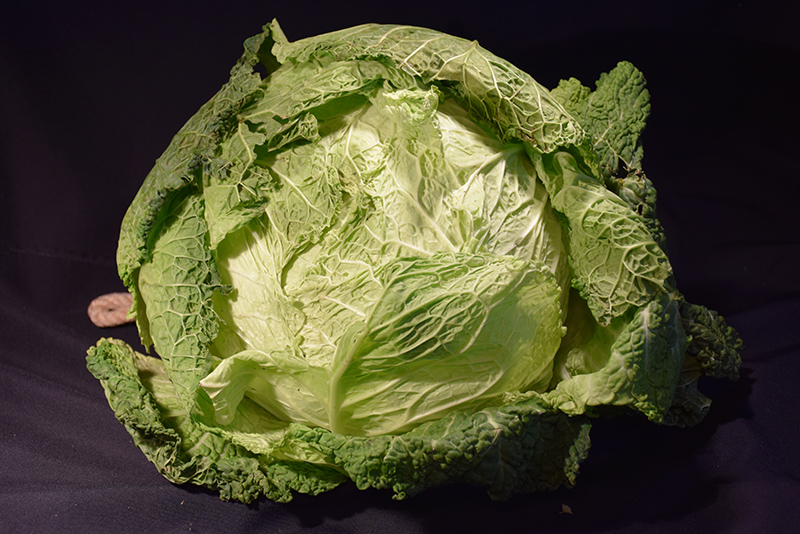Famosa Cabbage
Brassica oleracea var. capitata 'Famosa'
Height: 18 inches
Spacing: 12 inches
Sunlight:
![]()
Hardiness Zone: (annual)
Description:
A wonderful midseason savoy variety that is quick to mature and great for home or market gardens; produces uniform, deep blue-green heads with buttery yellow centers; flavorful and tender, excellent for braising, cabbage rolls, soups or sautéing
Edible Qualities
Famosa Cabbage is an annual vegetable plant that is commonly grown for its edible qualities. The round bluish-green tightly-wrapped heads of foliage are typically harvested when mature. The heads have a pleasant taste and a crisp texture.
The heads are most often used in the following ways:
- Fresh Eating
- Eating When Cooked/Prepared
- Cooking
Planting & Growing
Famosa Cabbage will grow to be about 18 inches tall at maturity, with a spread of 18 inches. When planted in rows, individual plants should be spaced approximately 12 inches apart. This vegetable plant is an annual, which means that it will grow for one season in your garden and then die after producing a crop.
This plant is typically grown in a designated vegetable garden. It should only be grown in full sunlight. It does best in average to evenly moist conditions, but will not tolerate standing water. It may require supplemental watering during periods of drought or extended heat. This plant is a heavy feeder that requires frequent fertilizing throughout the growing season to perform at its best. It is not particular as to soil pH, but grows best in rich soils. It is somewhat tolerant of urban pollution. Consider applying a thick mulch around the root zone over the growing season to conserve soil moisture. This is a selected variety of a species not originally from North America.
Famosa Cabbage is a good choice for the vegetable garden, but it is also well-suited for use in outdoor pots and containers. It is often used as a 'filler' in the 'spiller-thriller-filler' container combination, providing the canvas against which the thriller plants stand out. Note that when growing plants in outdoor containers and baskets, they may require more frequent waterings than they would in the yard or garden.

